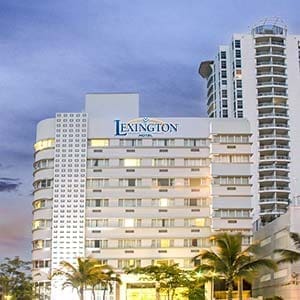 As a hotel consultant, I am often asked a pertinent question: Do hotels make profits in India? The challenges in building, operating, buying and selling hotels are a plenty. Investors frequently point to the relatively lower risk associated with other commercial asset classes such as office buildings, retail developments and warehouses. The highly dynamic and perishable nature of the hotel business pushes them to question the very veracity of it.
As a hotel consultant, I am often asked a pertinent question: Do hotels make profits in India? The challenges in building, operating, buying and selling hotels are a plenty. Investors frequently point to the relatively lower risk associated with other commercial asset classes such as office buildings, retail developments and warehouses. The highly dynamic and perishable nature of the hotel business pushes them to question the very veracity of it.
So, are hotels a good investment? At the risk of doing what consultants do so well, I must state that my answer is — it really depends. A myriad of factors impacts the profit-generating ability of hotels, not the least of which is the market’s inherent potential. Both inbound and domestic movements across India have been displaying congruous growth. The demographic denominations thus point to a promising base of demand that shall continue to extend. While some other sectors have witnessed a dampening of sentiment in recent months, the corporate tax rate slash and the GST reduction on guest room folios has the potential to shore up the hotel business.
Moreover, economic appreciation is being witnessed across scores of rapidly developing towns and cities. Travel, trade and resultant tourism are likely to be the natural benefactors of such an environment. It may appear reasonable to infer from such circumstances that year-on-year growth of revenue (and by some ill-fated logic, profits) across most hotels in India is infallible. You see, this is where it becomes important to make a distinction between what is practical and what is practicable
Higher room demand may not always translate to profits
A straight forward, logic-based, sensible argument — ‘Hotel room night demand in India is strong’. That is a practical position. All indicators lead us to find merit in it. However, while practical refers to something that is easy to accept, practicable means ‘something that can actually be achieved’; something that is workable, attainable or feasible. It is practical to assume that rooms will sell, and revenue will be earned. However, it is not always practicable that profits will be had.
Why the word play, one may ask. Hopefully to draw a distinction between businesses simply existing, versus businesses growing meaningfully. There is scant rationale in operating an enterprise if all it does is subsist in a state of inertia. Some hotel owners will nod furiously if asked about the static (or worse, diminishing) profits that their assets have been generating in recent years. They find little to no solace in this up-cycle because, frankly, it has not been practicable to have meaningful gains from it.
Strategies to up profitability
A clinical prognosis of the challenges is in order. When conducted, it will become evident that a few different strategies should have been employed, or can now be focused on, if one truly means business. For those planning their next (or first) hotel, building the right product is critical. A poorly researched hotel project that either lacks proper market intel, is incorrectly positioned, or just ill-timed, has a high likelihood of running into rough waters. Getting a proper and detailed feasibility study before spending vast sums of money is imperative. A quality job would entail thorough scrutiny of the past, present and future of demand-supply dynamics in a micro-market. It would draw inferences from socio-economic as well as geo-political factors that could impact success.
The projections would err on the side of caution, while ensuring that heed was paid to the fundamentals of the project, including the promoter’s cost of borrowing and equity return expectations. A well-structured feasibility study will aid in sound planning, avoiding all the pitfalls of an ad hoc and erratic business decision.
The right choice in branding and management is also consequential to the success of hotels. Most hotel developments in India operate under the management contract arrangement with a reputable hospitality brand. Over 55 hotel companies of varying brand repute and management expertise presently operate across India in a chain scale format. Honing into the right choice for your asset, and then ensuring that a balanced and equitable management contract is executed, are principal matters.
The role of the operator
From brand recall to management proficiency, and from distribution muscle to attracting the right talent, the operator has a multipronged role to play in this equation. Hotel management contracts are unique, detailed and often confusing. Both, first-time owners, as well as seasoned hoteliers, need a trusted advisor when negotiating and signing these long-term and complicated agreements. No two contracts are similar, and no two hotel projects are the same. Equally important is the fact that each hotel owner has a different set of expectations from their operator. The ability to identify these needs while negotiating a hotel management contract is extremely important.
Opting for expert asset management
Hotels in mature markets across the world have long been successfully utilizing the professional expertise of qualified asset management and revenue management firms. While the brand and management entity brings a significant level of virtuosity to the profit-generating potential of hotels, they do not promise these returns. Savvy investors have thus frequently found merit in appointing a team of experts that is focused on optimizing the returns from the business. The asset manager’s task is to unlock the true potential of a hotel by assisting the unit operations team to challenge the status quo. By using market intelligence, logical assessment and industry best practices, they offer a perspective about ways and means of balancing the day-today challenges of operations with the financial objectives of the owner. Asset managers usually link most of their compensation to the successful achievement of the owner’s goals, thereby aligning their performance to their remuneration.
Similarly, many hotel owners seek a strategic and operational level of revenue management support from firms that offer a series of activities specially customized for increasing hotel revenue. Revenue management consulting firms assist hotels with a full deck of analytical and intuitive inputs on managing rates, content and digital sales platforms. From business mix optimization and pricing strategies to online channel and content management, owners benefit from the expertise of an entire team of revenue management experts and data scientists, as opposed to relying solely on the capabilities of the hotel’s in-house revenue manager.
How investment can return profits
Every investment has two paths to delivering profits — the return ON capital employed and the return OF capital employed. In the context of a hotel investment, simply put, the profit-after-tax earned by the hotel by way of annuity is the asset’s return on capital. However, a sale of the asset for, say, twice its original acquisition or development cost constitutes a return of capital.
A sound, profit-generating hotel investment would be one that permits an ongoing return on capital that is higher than the promoter’s cost of capital, while also putting to advantage the opportunity to exit the investment when a meaningful multiple on the original investment becomes available. Rather rare are the circumstances when both return on and of capital employed works in an investor’s favour. It becomes important, therefore, that hotel owners get a valuation of their asset done on a frequent (probably once a year) basis, so that they are adequately in the know of just how hard that capital of theirs has been working.
Knowing when to exit an investment is possibly even more important than knowing what investment one should enter. Profits can even be had from sub par ROCE projects, if the exit strategy was well timed. A professional hotel valuation done on a recurring basis as well as sound counsel from a reputable transaction advisory firm can help investors make serious and well-timed returns. In conclusion, it is pertinent to reassert the fact that planning right, choosing the appropriate operating partner, seeking consulting advise on an ongoing basis, and being open to an exit when the time is opportune — all these strategies can significantly escalate the probability of growth-focused, profit-generating hotels. THIS is practicable!
About the author
Achin Khanna, MRICS is the Managing Partner of Hotelivate, a new-age hospitality consulting firm offering specialized services to clients across the Asia Pacific region. Founded by the erstwhile team of HVS India, Hotelivate, offers a comprehensive consulting environment through a diverse team of consultants that have a combined professional experience of 250 years across varied hospitality verticals. The firm presently has offices in Delhi and Mumbai, with Singapore and Jakarta opening shortly.
The founding partners of Hotelivate are reputed hospitality business consultants, who have advised, assisted and nurtured thousands of clients for more than two decades in South Asia. Through its focused, empathetic and innovative approach, Hotelivate serves a wide range of industry stakeholders across all phases of hospitality lifecycle consulting, thereby eliminating the need for several different advisors. Core services of the firm include: Strategic Advisory (Feasibility Studies, Valuations, Management Contract Negotiation), Executive Search, Professional Skills Development, Investment Advisory, Asset Management, Revenue Management, Project Execution Planning and Advisory and Debt Advisory. For more information, please contact Achin Khanna on achin@hotelivate.com.


















